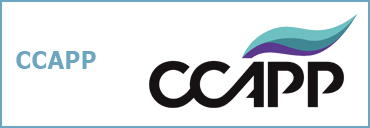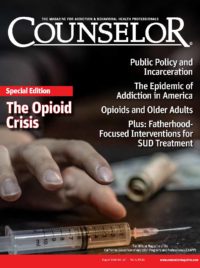Share

I hate writing progress notes. You probably do, too. They are often the most unpleasant part of our jobs, but also one of the most critical, particularly in the world of addictive disorder treatment. We work in an industry that is becoming increasingly riskier as the years pass, given that the national suicide and overdose rates have been on the rise. Our notes are effectively legal documents that follow both us and our clients for many years, and they truly have the ability to irreparably tarnish otherwise shining counseling careers—clinicians can actually go to jail due to documentation oversights—and can also have significant, life-changing effects on our clients, like the loss of disability payments or denials of insurance coverage. As a whole, our industry does not do enough to discuss the impact of clinical documentation on our clients, ourselves, and our workplaces—we simply trudge through it without much intentionality.
I have had the honor and pleasure of working alongside dozens of clinical teams throughout the United States as a clinical documentation and utilization review trainer, and I consistently notice something: when we clinicians are operating from a place of mindful awareness, when we are really reflective and aware of where we are in treatment in the present moment, we are significantly more effective. A number of treatment models, from feedback-informed treatment (Miller, Bargmann, Chow, Seidel, & Maeschalck, 2016) to mindfulness (Escuriex & Labbé, 2011), illustrate that we are more effective clinically when we are receptive and responsive to what is happening in the counseling room. Simply put, we are better at our jobs when we are wide awake at the wheel and mindful of what we are doing and why. This research made me ask myself: Could we integrate clinical documentation into this equation? Could we make our notes things that both help us satisfy legal and ethical requirements and make us more effective clinicians? As I further reflected on these questions, I realized that documentation is an opportunity for mindfulness. We should not be on autopilot when we are in the room or when we are writing about what happened in the room, just as we would not want our own primary care doctor to just “go through the motions.” When it comes to effective treatment planning, how can we be of service to clients and help them get where they want to go if we are not proficient at assessing where they have been? When it comes to writing notes, if we pause before our fingers begin to fly over the keys and prompt ourselves to consider some key elements, we can make our notes sharper, faster, and more accurate.
In my own journey of how to write more effective notes, I developed a mnemonic called “Safety FIRST.” Regardless of what population you work with or what note format you use, this method of checking yourself before you begin writing saves time by avoiding that dreaded moment when you realize your last paragraph contains a lot of words but actually says nothing. I encourage you to try a new way of note writing by reminding yourself of these elements as you sit there, staring at that blinking cursor on your computer screen:
- Safety (most importantly): What are the safety and/or risk factors I need to document?
- F = Functional impairment: How do clients’ conditions and/or situations impact their ability to function in important domains (e.g., work, school, home, etc.)?
- I = Interventions: What are the most important treatment interventions I used and what were the clinical reasons behind them?
- R = Response: How did clients respond to me and/or my treatment interventions? How did they present?
- S = Symptoms: What symptoms did I observe in the session (e.g., tearfulness, physical agitation, etc.) and what were the reported symptoms (e.g., insomnia, lack of appetite, etc.)? What was presented in the mental status exam?
- T = Therapist’s interpretation: What is my clinical assessment of what is going on? This might include progress, prognosis, diagnosis, potential for relapse, etc.
The truth is that none of us enjoy writing notes, or at least if those counselors are out there, the ones whose eyes light up when they think about writing notes after each session, I have not met them yet! That said, if we slow down and consider the content of our notes and the impact they may have on ourselves and our clients, we become more mindful about our work, which only serves the greater good. Onward and upward, you healers! May your notes be slightly less tedious and more beneficial.
References
- Escuriex, B. F., & Labbé, E. E. (2011). Health care providers’ mindfulness and treatment outcomes: A critical review of the research literature. Mindfulness, 2(4), 242–53.
- Miller, S. D., Bargmann, S., Chow, D., Seidel, J., & Maeschalck, C. (2016). Feedback-informed treatment (FIT): Improving the outcome of psychotherapy one person at a time. In W. O’Donohue & A. Maragakis (Eds.), Quality improvement in behavioral health (pp. 247–62). Cham, Switzerland: Springer International Publishing.

Elizabeth Irias, LMFT
Elizabeth Irias, LMFT, is the founder and president of Clearly Clinical, a national, affordable, podcast-based behavioral health CE program approved by CCAPP, CAMFT, the APA, CPA, NBCC, and NAADAC. She has specializations in utilization review, clinical documentation, and quality assurance, and trains clinical teams across the county. An adjunct graduate professor at Pepperdine University, Irias operates a private practice in Westlake Village, California, where she provides therapy to adolescent and young adult clients, members of the LGBT population, and those with addictive disorders.









 Counselor Magazine is the official publication of the California Association of Addiction Programs and Professionals (CCAPP). Counselor offers online continuing education, article archives, subscription deals, and article submission guidelines. It has been serving the addiction field for more than thirty years.
Counselor Magazine is the official publication of the California Association of Addiction Programs and Professionals (CCAPP). Counselor offers online continuing education, article archives, subscription deals, and article submission guidelines. It has been serving the addiction field for more than thirty years.